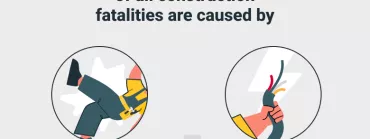Understanding the basics of supply bonds
Things are looking good for the construction industry, with construction spending getting close to pre-recession levels. That's good news for people looking to get involved in federal or state work projects. But besides a lot of opportunities, public work projects are also very demanding in terms of requirements and paperwork. Governments want to make sure they are not wasting taxpayers' money, so they have imposed a surety bond requirement on many of the sides involved in a public works project. Suppliers of construction materials, for example, are often required to get supply bonds. Let's take a closer look at what supply bonds are and how you can obtain them.
 Photo credit: Alexandre Prévot / Foter.com / CC-BY-SA
Photo credit: Alexandre Prévot / Foter.com / CC-BY-SA
Definition of supply bonds
Supply bonds are a type of surety bond that falls in the broader category of contract bonds. But before we proceed, you might be wondering what surety bonds are in the first place. You are not alone. Surety bonds are a legal contract that binds three parties. The first one is the principal and they are the side that needs to post the bond, which stands for a certain promise on their part. The second one is the obligee – that's the side the surety bond is protecting. The last one is called surety and that's a surety bonds company. The surety underwrites the bond and thus guarantees that the principal is capable of meeting their obligations towards the obligee.
In the case of supply bonds, the bond makes sure that the supplier will furnish all materials as described in the contract. It bears no obligation on their labor, though. If there is a breach in the agreement and a claim is filed against the supplier, the surety is obliged to compensate the obligee financially. A supplier will then have a legal obligation to return the money to the surety. That being said, not all public works projects will require a supply bond. Each state has its own requirement, whereas federal projects typically require a supply bond when they exceed $100,000.

 Photo credit: vonderausvisuals / Foter.com / CC BY-NC-ND
Photo credit: vonderausvisuals / Foter.com / CC BY-NC-ND
Obtaining supply bonds
The best way to find a good deal on supply bonds is through the website of a surety bonds agency – one that works with many sureties. This increases people's chances of obtaining a bond and getting a good deal.
You will be asked to provide a lot of details about you and your business – personal credit score, financial statements, proof of insurance, etc. Information about your previous experience is also needed because sureties want to determine your financial viability and how likely you are to trigger a claim. The contract bonds market has become more conservative in the past decade and surety bonds companies always assume a 0% loss ratio when underwriting them. Thus, all that information will be used to determine the price you pay for your bond.
You are likely to get a lower price if you have a good personal credit score and if you show strong financial statements. Thus, if you have overdue payments, you should go ahead and collect them as a higher net profit is viewed very favorably by sureties.
For all of the above reasons, it's almost impossible for people with bad credit to obtain contract bonds, supply bonds included. New businesses may need to pay a slightly higher percentage and work on small projects at the beginning. As their experience increases, they can expect to be trusted with larger projects as well.
- Fast and Secure Application
- Nationwide Coverage
- Approval in Minutes
- Money Back Guarantee
Recommended Articles
- Fast and Secure Application
- Nationwide Coverage
- Approval in Minutes
- Money Back Guarantee
- Image

- Image

- Image

Lance Surety Bond Associates, Inc. is a surety bond agency based out of southeastern Pennsylvania that is able to write all surety bond types in all 50 states. We are dedicated to servicing all of our customers' surety bonding needs throughout the country and guarantee competitive rates, timely responses, and unparalleled customer service.






